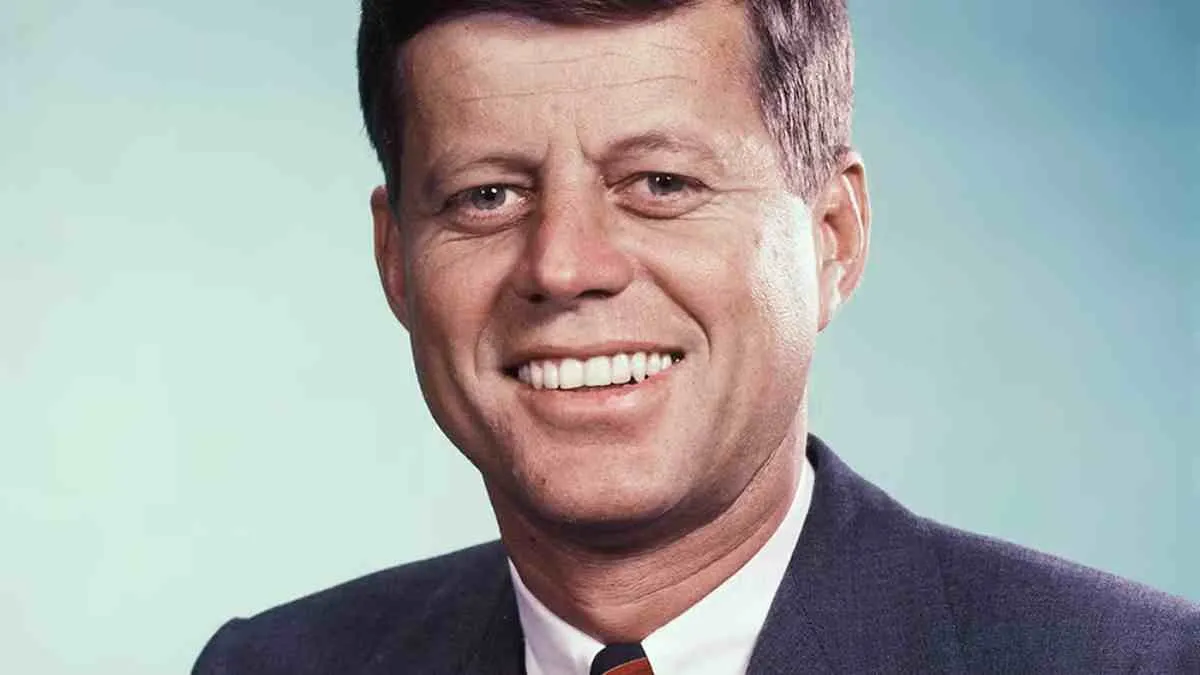When it comes to the history of American presidents, age often plays a crucial role in public perception and political legacy. Among all the U.S. presidents, one name stands out for being the youngest elected to the office: John Fitzgerald Kennedy, popularly known as JFK.
Check out: List Of 10 Largest National Parks in the U.S.: Check the Size and Location
How Young Was John F. Kennedy When He Became President?
John F. Kennedy was just 43 years old when he took the oath as the 35th President of the United States in January 1961. Although Theodore Roosevelt became president at age 42 after William McKinley’s assassination, JFK remains the youngest person ever elected to the presidency through a national vote.
What Made JFK’s Election Historic?
Apart from his age, Kennedy made history as the first Roman Catholic to be elected president. His 1960 victory over Republican Richard Nixon was narrow but symbolically powerful. He captivated the nation with his youth, charisma, and compelling oratory, particularly during the first-ever televised presidential debates, which helped sway public opinion in his favor.
What Was JFK’s Background Before Becoming President?
Kennedy was born on May 29, 1917, in Brookline, Massachusetts, into the politically influential Kennedy family. A graduate of Harvard University, he served as a naval officer during World War II, earning the Navy and Marine Corps Medal for heroism after rescuing his crew following the sinking of PT-109. He began his political career in 1947 as a Congressman, then served as Senator from Massachusetts (1953–1960). During his Senate tenure, he authored the Pulitzer Prize-winning book Profiles in Courage.
What Challenges Did JFK Face as President?
JFK’s presidency occurred at the height of the Cold War. He navigated major global crises, including:
-
The Bay of Pigs Invasion (1961)
-
The Berlin Wall crisis (1961)
-
The Cuban Missile Crisis (1962), which brought the world to the brink of nuclear war
Despite these tensions, he also signed the first nuclear weapons treaty, created the Peace Corps, and expanded the Apollo program aimed at landing a man on the Moon.
Was Kennedy Involved in Civil Rights and Domestic Policies?
Yes, Kennedy supported the civil rights movement, though his progress on domestic reforms under the New Frontier agenda was moderate during his lifetime. After his death, key legislation like the Civil Rights Act of 1964 and the Revenue Act of 1964 were passed under President Lyndon B. Johnson, fulfilling many of Kennedy's proposals.
What Was JFK’s Personal Life Like?
In 1953, Kennedy married Jacqueline Bouvier. The couple had four children, though only two, Caroline and John Jr., survived infancy. The First Family became media icons, often compared to royalty, and were admired for their style, youth, and cultural sophistication.
Did JFK Struggle with Health Issues?
Despite his vibrant image, Kennedy suffered from numerous health problems, including Addison’s disease, chronic back pain, and colitis. He secretly took a wide array of medications and had undergone multiple surgeries, but much of this was hidden from the public during his lifetime.
What Happened to JFK?
On November 22, 1963, President Kennedy was assassinated in Dallas, Texas. Lee Harvey Oswald was arrested but was later shot by Jack Ruby before his trial. JFK’s sudden death shocked the nation and sparked countless conspiracy theories, many of which continue to this day.
Check out: When and From Whom Did the US Become an Independent Country?
Conclusion
John F. Kennedy, at 43, became the youngest elected president in American history. Despite a short presidency, his legacy endures through transformative foreign policy, support for civil rights, and the enduring image of a youthful leader who envisioned a better future for America.

Comments
All Comments (0)
Join the conversation